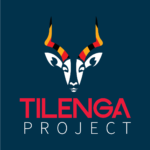Six French and Ugandan campaign groups have asked a French court to order energy company Total to disclose how it is addressing the human and environmental impact of a Ugandan oil field, according to Friends of the Earth.
Despite the complaints by the group Total says it is working in Uganda in compliance with national and international standards.
Under French law, large French companies are required to publish annual plans that address any adverse impact of their activities, and those of subsidiaries and suppliers, on people and the environment.
In their legal application, the six campaign groups, which included Friends of the Earth, say Total had not met that obligation.
In a June 24 notification to Total, the campaign groups alleged Total intimidated and failed to properly compensate local land-owners affected by work on its Tilenga project in Uganda.
They also claimed Total had failed to develop adequate environmental safeguards to protect the surrounding national park through which the Nile River flows.
Crude reserves were discovered in Uganda more than 10 years ago but production has been repeatedly delayed by disagreements over taxes, while a lack of infrastructure such as a pipeline and a refining facility, has also limited work progress.
In a Sept 30 2019, statement, Total said there was no legal requirement for it to publish reports on each of its projects, adding it had put measures in place to mitigate impacts from its Tilenga project, and was working in consultation with local people who had to be re-located because of it.
Total plans to drill more than 400 oil wells with the objective of producing 200,000 barrels per day in the Lake Albert area, which marks part of the border between Uganda and Congo.
According to critics of Friends of the Earth, which was based on months of field research, Total’s oil project will have serious consequences for the environment, as well as for the almost six million people in the region who depend on agriculture and fishing for their livelihood.
The consequences could extend to the entire African Great Lakes region
Friends of the Earth who conducted the survey in the Lake Albert area with her Ugandan partners (AFIEGO, CRED and NAPE), pointed out the general nature of the danger associated with the implementation of Total’s project. “Even the populations that will not be expropriated in the vicinity of the lake will be directly affected by the pollution generated by oil activity: pollution of the air, soil and water is inevitable in such projects,” said Juliette Renaud.
The investigation also points to the consequences of an oil spill in the Lake Albert area. For experts, such an event will be catastrophic for the entire African Great Lakes region. “Lake Albert is, of course, concerned, but also the Nile. Since we are on one of the source points of the Nile with a whole network of planned pipelines, which must pass under the Nile. Horizontal drilling opportunities are also planned under Lake Albert with high risks of water contamination,” explained Juliette Renaud.
As from the date of filing of the formal notice, Total S.A. had a maximum period of three months to comply with the requests of Friends of the Earth and its Ugandan partners.
The approach taken by these organisations is guaranteed by the new law on the “duty of vigilance of multinationals”, promulgated in March 2017 in France. This is the first time this law has been used to address the consequences of the activities of a subsidiary of a major French group abroad.








